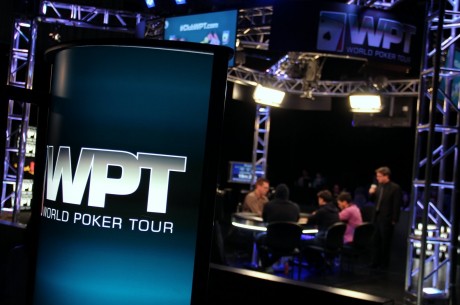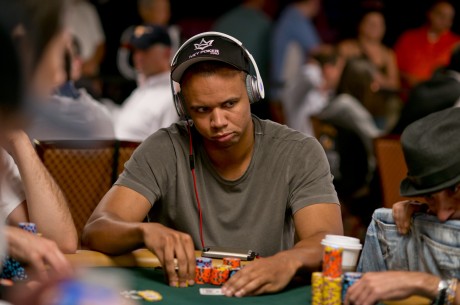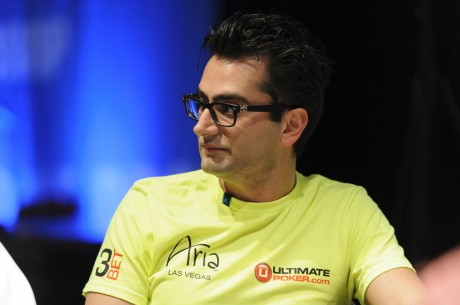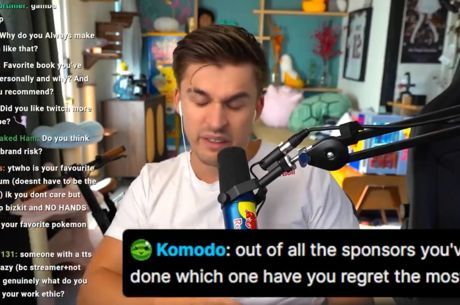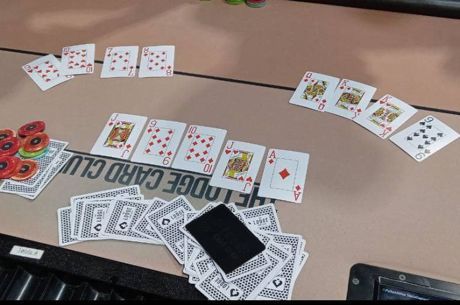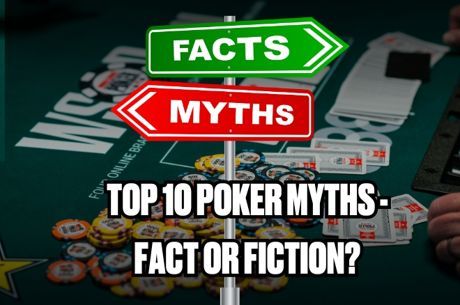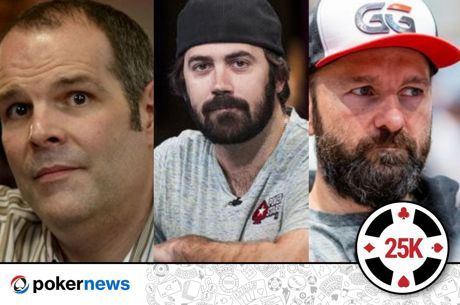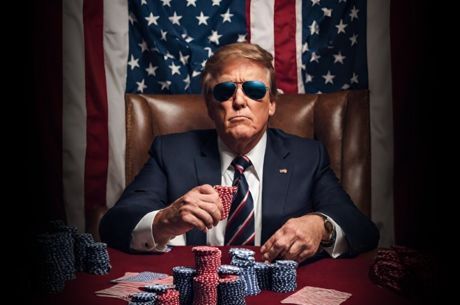PokerNews Debate: Is a Shot Clock Good for Poker?
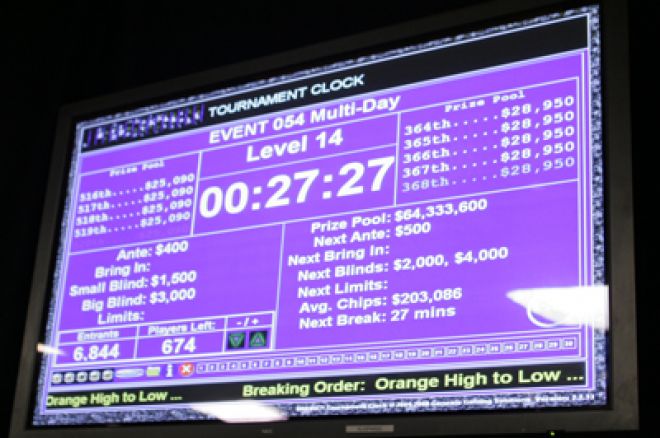
Earlier this week the World Poker Tour polled players at the L.A. Poker Classic on whether or not they thought a shot clock on the tour would be a good idea. Players were to answer "yes" or "no," and if they answered in the affirmative, a follow up question was asked �� when should it be used (in the money, final three tables, and/or final table only)? According to the WPT's Mike Sexton, 80% of players believed there should be some sort of shot clock.
The shot clock debate has been around for awhile, but it is also a concept that has been around for a few years in the $100,000 Challenge at the Aussie Millions. Here, PokerNews' Editor-in-Chief, Donnie Peters, and Senior News Editor, Chad Holloway, debate whether or not a shot clock would be good for the game.
Donnie Peters Thinks a Shot Clock Would be Bad for Poker
After news came out last week that the World Poker Tour was polling players in the L.A. Poker Classic Main Event to get their opinion about introducing a shot clock for next season, the chatter of the idea grew. I��m of the opinion that implementing a shot clock into all WPT events would be a bad idea because I believe it would be bad for the game.
While I do believe that having every main event on the tour be played with a shot clock involved, the WPT has the right idea. The goal they are trying to achieve is fixing a problem that has become more and more prevalent in the more recent years of poker, and that��s the constant tanking, stalling, and extremely slow play. It��s an epidemic of sorts and one that clearly needs to find a cure, but implementing a shot clock for the duration of a tournament is a bad idea.
The absolute biggest thing that sticks out to me is that amateurs don��t like to have added pressure thrust upon them when playing one of these events, especially when they are often taking a shot at a higher tournament buy-in or have won into the event via a satellite. Knowing that you will now be restricted to only a certain amount of time per decision will undoubtedly deter many from playing an event, in my opinion.
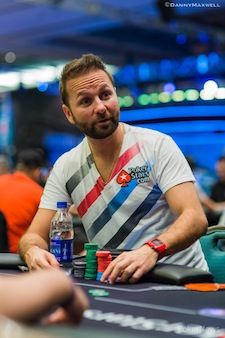
Second, this is another thing that dealers have to worry about to start a tournament and something they could possibly mess up during an event. Listen, I know and respect a ton of dealers in the industry, but the fact of the matter is that larger these fields get the less qualified dealers are going to be at the beginning of events. You want the dealers to focus on running a smooth and efficient table, not worrying about how many seconds Johnny River has left on his clock. Then, there��s inevitably going to be the situations where the dealer is blamed for either counting too slow or too fast, and that could cause the game to be slowed down even more after players start arguing and complaining with the dealer and floor staff.
The bottom line is that the idea behind implementing a shot clock is correct, but the plan put into motion needs to be different. The problem is only going to be solved if and when industry personnel and the players start acting in accordance to fixing the problem. Let me give you two ways this can happen.
The first way is an example from the 2013 World Series of Poker. When the tournament was down to three tables, PokerNews began hand-for-hand coverage of each table individually. The WSOP staff took note of this and began checking in periodically to see how many hands were played at each table during each level, as there was a break following every level. While it��s understood that the tables will be playing at a different speeds, any large discrepancies in the amount of hands played were addressed. The staff would speak to each dealer at the tables to see if any players were acting particularly slow, and those players were then spoken to privately. I��m not saying tracking all hands at every table is a possibility, but communication is. If all staff work together more to communicate with one another, it can help police those playing too slow.
The second way the problem can be solved is by the players policing themselves. This doesn��t mean hitting someone with a baseball bat or calling them an idiot, but it does mean being a bit more proactive. Daniel Negreanu has long stated that if he sees a player at his table playing too slow, he��s going to first call them out and then begin calling the clock on them. There��s nothing wrong with this at all. You can be nice and let the player know you believe they are taking way too much time before warning them that you are going to exercise your right to call the clock if it continues to happen. Of course, this could start a clock-calling war between players, but if the dealers and the staff are doing their job correctly, they will know who is in the right and who is in the wrong.
The responsibility of policing themselves falls first and foremost with the professional players. They are the ones the amateurs look up to and try to emulate. And besides, as pros don��t you want to play more hands against a field you think you have an edge over? Then stop taking so damn long! Less time per hand equals more hands per hour or level. It��s simple math.
The idea of having a shot clock in an event isn��t entirely bad, though, and can be used for special events here and there. It just doesn��t need to be widespread across an entire tour. Save it for the small-field, high roller events, the invitationals, or the gimmick events. Don��t implement it in the events where we are supposed to be appeasing to the masses in order to find poker��s next superstar and attract more people to the game.
Chad Holloway Thinks a Shot Clock is Good for Poker
It sounds like Donnie and I agree that there is a place in poker for the shot clock. However, I do not share the same concerns as him, nor do I believe a poker shot clock should be reserved for high rollers, invitationals, etc. Instead, I think a new precedent should be set by a major tour, like the WPT, adopting a shot clock in all of their events. At the very least, give it a shot (pardon the pun), gauge how it goes, and adapt accordingly.
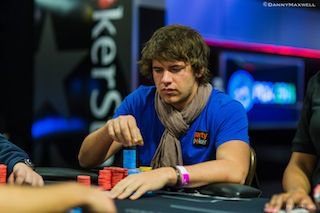
Personally, I shudder when I think how much time I��ve watched people in the tank. If you combine my days as a player and tournament reporter, it's easily days, if not weeks, of my life wasted. Trust me, every time Marvin Rettenmaier gingerly picks up chips and slowly cranes them into the pot, I want to scream. It��s extremely frustrating.
As a player, I once thought about using a stopwatch as my card protector. When someone was consistently taking too long, my plan was to time him or her and then take the exact same amount of time to act. I wanted to waste their time just like they were wasting mine. Ultimately, I gave up on that idea because I didn��t want to be an asshole to the other players. I mention this to show the effect the tanking phenomenon was having on my mental well-being.
The point is, I��m not a fan of how long it takes some players to act. I understand that some situations call for it, but most don��t; for instance, a three-bet pot preflop in Level 2 of a tournament. If you��re thinking for more than 20 seconds in that spot, you��re simply taking too long. It slows up the game, makes it less fun, and is disrespectful to the other players.
Let me start off by saying the WPT shouldn��t have offered only three choices as to when the shot clock should be used. At the final table? Probably not. By that point, the players have put in their dues and deserve to take as much time as they��d like when the big money is on the line. The final three tables? Maybe, but players deserve more time to act here than they do, say, on Day 1 or 2. In the money? Same thing.
Essentially, what I advocate is a progressive shot clock. It��d be subject to the structure, but something along these lines (greater minds than mine could figure out an ideal shot clock format I'm sure):
- Day 1: Players get 30 seconds to act on their hand.
- Day 2: Players get 45 seconds to act on their hand.
- Day 3 and/or "In the Money": Players get 60 seconds to act on their hand.
- Day 4: Players get 90 seconds to act on their hand.
- Final Table: No shot clock.
I��d also like to see live poker borrow from the online realm and utilize time banks. As others have advocated, each player would start with a certain number of ��time-bank�� chips, which would carry on to the next day if unused. When used, they would buy that player a preset amount of time. For instance, on Day 2 your 45 seconds are almost up, but what if you��d like more time to make a decision? Simply use a time-bank chip and you will get an extra minute (or whatever amount of time it's worth) to act.
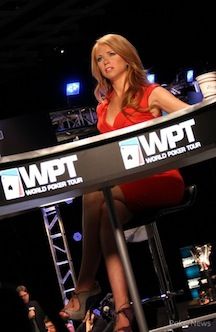
Doing this would give each player access to the same amount of time, and that seems fair to me. I understand that some people take longer to process things than others, but I think a fair compromise is a shot clock that provides everyone a reasonable amount of time.
To enforce this, the dealers would need a stopwatch/timer (they execute it with few errors at the Aussie Millions). They would also need to develop a cash-game mentality of pushing and maintaining a good game flow (the more hands they get out in cash games, the more they make in tips). Basically, the dealers would responsible for policing the game, which I believe is a good thing. This also allows other tournament staff to focus on bigger picture things such as keeping track of tournament chips, which we all know has been an issue of late.
People can also argue that it��s up to the players to police the game, but let��s face it, not all players are capable of that. For every Daniel Negreanu, who is an extrovert and unafraid to call people out, I would wager there are five times as many players who are coy and hesitant to speak up. Instead of voicing their concerns and frustrations, they sit in silence and dwell, which can easily develop into a distaste for the game. I know this because it is my firsthand experience as a player.
Finally, I��ll end by saying that a shot clock is a must for any tournament or final table being live streamed (I��d grant a few exceptions where huge money is at stake). I say this for purely entertainment reasons. Everyone fell in love with poker 10 years ago when action was fast-paced and ESPN episodes were full of big hands. Little did we know about the hours of monotonous footage that hit the cutting room floor. For the most part, poker is a boring game, and that makes it hard to attract new players. A shot clock would help speed things, inject some excitement into a broadcast, and hopefully appeal to a wider audience.
What are your thoughts on a poker shot clock? Make you selection in the poll and let us know your thoughts in the comments section below.
To read Rich Ryan's take on the shot clock, click here.
Get all the latest PokerNews updates on your social media outlets. Follow us on Twitter and find us on both Facebook and Google+!


